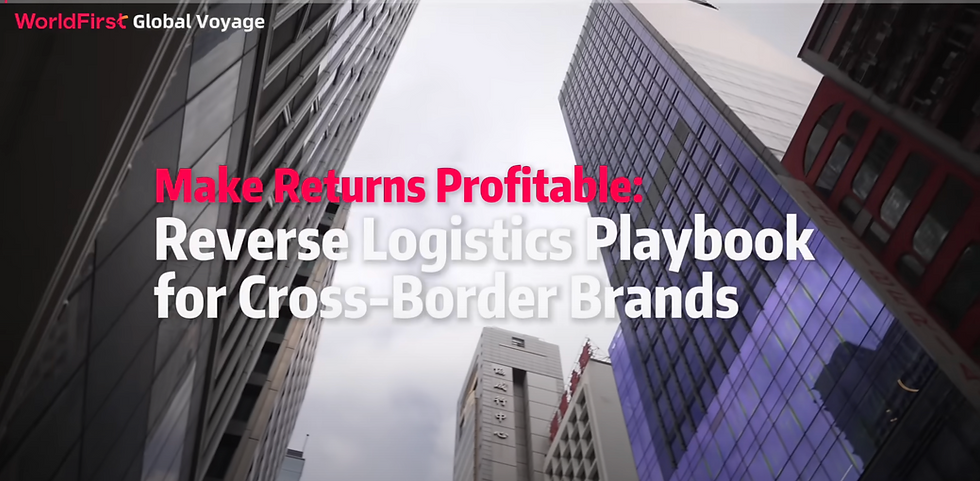The Top Trends in Retail: What We Learned at NRF 2023
- return helper
- Feb 1, 2023
- 3 min read
Do you wish to shake things up for your retail business in 2023? Maybe adopt a new MarTech solution for your e-commerce brand to better trace consumer behaviors? Or take steps to incorporate ESG efforts when manufacturing your products?
This article will reveal what actions other large retail enterprises take. The recently concluded National Retail Federation (NRF) 2023 Retail's Big Show has provided insights on how retailers use technology, cultural differentiation, and innovative strategies to drive breakthroughs in their business.
Omnichannel focus - According to a survey by Salesforce, 92% of customers expect an omnichannel experience when shopping. Additionally, a study by Accenture found that omnichannel customers spend 4% more in-store and 10% more online compared to single-channel customers.
Tech adoption - Tech is enabling associates both on the front line and in corporate offices to work less transactionally with more purpose, said PepsiCo North America CEO Steven Williams. As a result, the global retail technology market is expected to grow at a compound annual growth rate (CAGR) of 7.3% from 2020 to 2027, reaching a market size of $221.1 billion by 2027, according to a report by MarketsandMarkets.
Sustainability and social responsibility - A survey by Accenture found that 69% of consumers are willing to pay more for sustainable products. Another survey by CGS found that 92% of consumers are more likely to be loyal to brands that are environmentally responsible.
Brands like REI have a strong commitment to sustainability and social responsibility. They have implemented environmentally friendly practices in their operations, support environmental conservation initiatives, and offer a wide range of sustainable products.


Data privacy - According to a survey by Accenture, 64% of consumers are more concerned about data privacy now than they were a year ago. Additionally, a study by the International Association of Privacy Professionals found that data privacy is the top concern among businesses, with over 75% of companies investing in privacy protection measures.
For example, Patagonia is known for its commitment to sustainability and corporate social responsibility and strongly emphasizes data privacy. The company has strict data protection policies and is transparent about its data collection and usage practices.

Personalization - “We spend time focusing on a few clients who have the potential to engage with us and build that relationship so that we ultimately drive customer lifetime value,” said Neiman Marcus CEO Geoffroy van Raemdonck.
Merchants cultivate the best brands and curate the best collections to help customers find what’s best for them so shoppers don’t have to navigate endless aisles. A survey by Epsilon found that personalized experiences drive 18% higher sales and a study by Accenture found that personalization can increase customer loyalty by up to 40%.
Building a company culture that impacts the store experience - “If our associates, our team members, are feeling good about where they work and feeling good about what they do, we automatically get a much better customer experience.” Pilot Company CEO Shameek Konar said.
A positive company culture fosters a positive work environment, which in turn leads to engaged and motivated employees who are better equipped to deliver exceptional customer service. This can result in a more enjoyable shopping experience for customers, which can lead to increased customer loyalty and repeat business.
For example, companies like The Container Store and Zappos are known for their strong company culture and customer-centric approach, which has helped them establish a loyal customer base and a positive reputation in their respective industries.



Comments